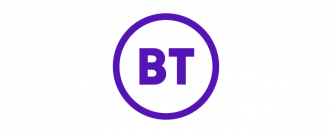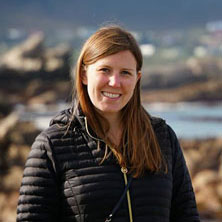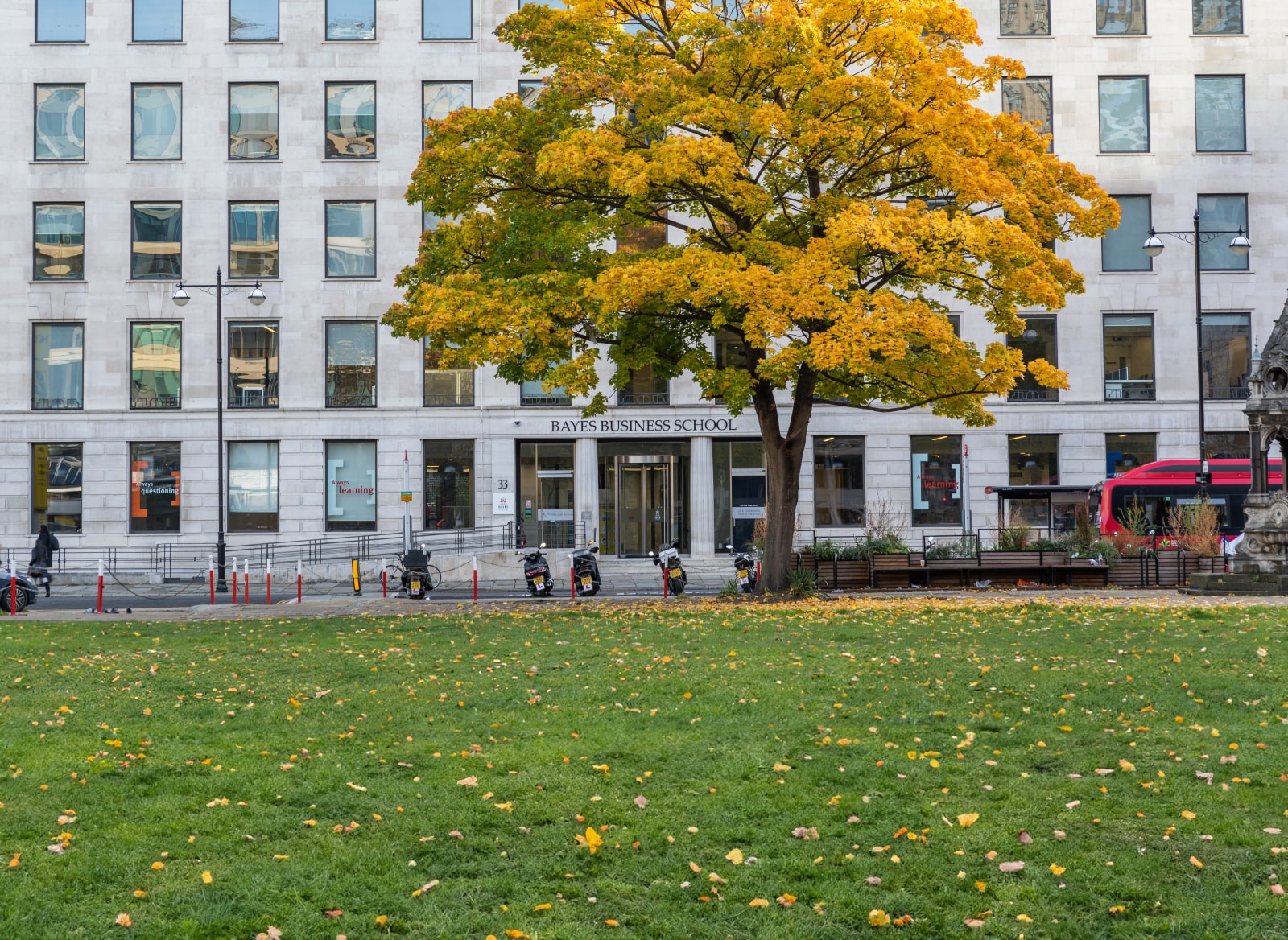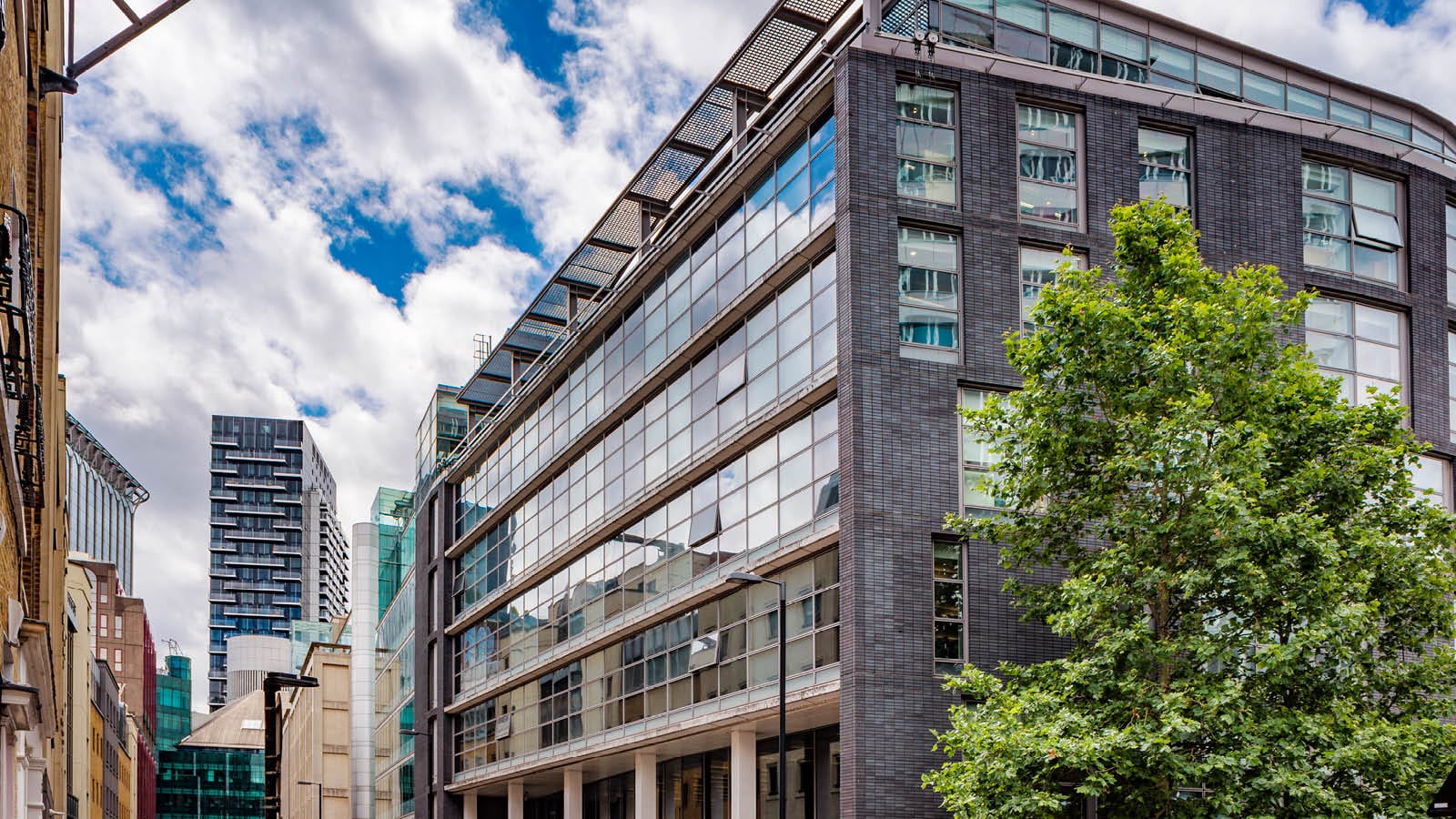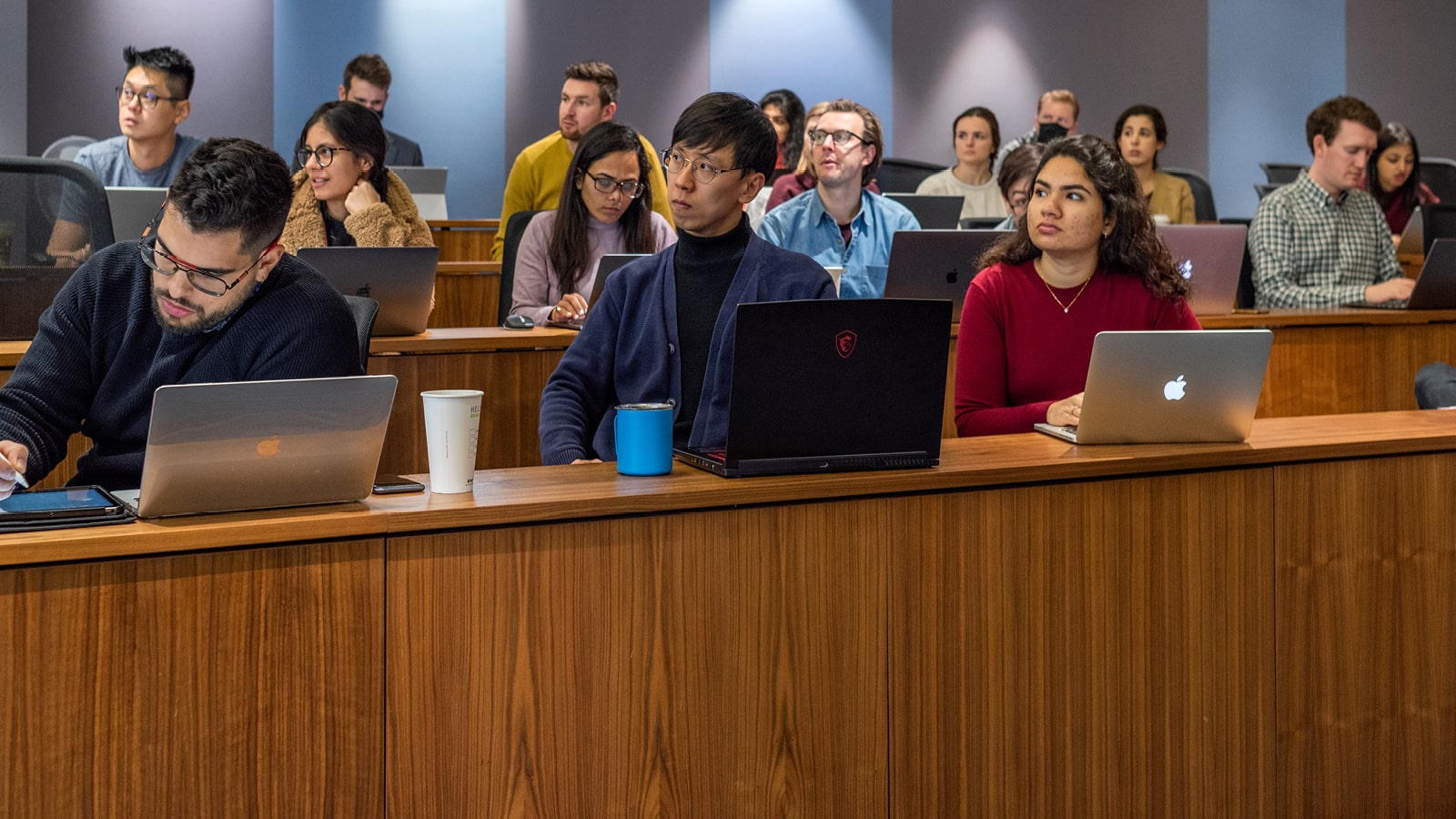Innovation, Creativity and Leadership MSc

Key information
Duration: 12 months (full-time) 24 months (part-time)
Attendance mode: Full-time; Part-time
Fees: £24,700 (more information)
Location: Finsbury Square
Start of programme: September 2024
Application deadline: August 2024
Entry year: Showing course information for 2024
An interdisciplinary Masters that will help you think differently and lead positive change
Overview
Innovation, Creativity and Leadership MSc Who is it for?
The Master's in Innovation, Creativity and Leadership is for you if:
- You’re a professional seeking to further expand your leadership and creative skills so you can address today’s increasingly unpredictable business, technological and social challenges
- You’re ready to challenge yourself and explore your own potential as an extraordinary leader, creator and innovator
- You want to inspire and empower your teams and organisations to take calculated 'leaps of faith' that will overcome today’s complex challenges.

Your future is worth investing in; the MICL will change you and challenge you.
- Diana Squires, MSc Innovation, Creativity and Leadership 2021 graduate
Why choose this course?
- This course will help you prepare for and engage with our increasingly complex and turbulent world
- It provides a rare opportunity to study innovation, creativity and leadership from a fully rounded, interdisciplinary perspective, learning from leaders in each of the disciplines
- Our curriculum acknowledges and builds upon your professional experience, marrying it with contemporary theories and innovative approaches
- We appreciate your work commitments – we offer options for part-time study so that you can balance work and study
- You will be able to apply what you learn to your current workplace through project-work. Be involved in projects running through the Centre for Creativity in Professional Practice, and the Centre for Creativity Enabled by AI
- You will have an unrivalled opportunity to network with a diverse community of like-minded professionals, and benefit from our close links with organisations.
Course objectives
In a complex and chaotic world, the aim of our master’s in innovation, creativity and leadership is to inspire and enable you to drive the future, and change things for the better. You will become part of a global community of creative thinkers and practitioners who work together to lead positive change.
The course takes a practical, reflective and values-based approach that brings theories to life, and offers you a wide variety of experiences to help you to strengthen your capabilities.
You’ll develop your own skills as a creative leader, and you’ll also discover how to unleash creativity within others, including team members, colleagues, clients and stakeholders.
You will learn from a multi-disciplinary team of academics and practitioners, developing knowledge and skills in leadership, creativity and innovation that enable you to bring about valuable change in a broad range of situations.
This interdisciplinary programme draws on theory and practice in:
- business
- the arts
- psychology
- law
- design
- digital technologies.
Teaching staff
On the MICL you will learn from a team of academic experts and highly experienced practitioners many of whom have been working together for over a decade to develop an integrated and highly practical interdisciplinary approach to the core topics of creativity, leadership and innovation.
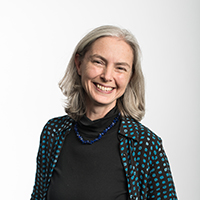
Module leaders include:
Course content
In this course you will:
- Develop your understanding of the roles and advantages of different creative problem solving strategies, techniques and tools in a range of different contexts
- Learn when to use different innovation tools, and in which situations
- Understand how cutting-edge digital technologies can support and facilitate creative problem solving
- Gain practical skills to facilitate creativity and enhance innovation
- Develop reflection skills that will support your personal development journey and your leadership skills
- Learn how to work effectively within teams to solve problems, produce creative outcomes and design solutions in business and other contexts
- Learn how to overcome barriers to creativity and innovation so you can deliver change
- Understand what elements foster a creative climate and what distinguishes creative organisations.
Course structure
Programme content is subject to change. We regularly review our module offering and amend to keep up to date and relevant.
The MICL Masters starts with two compulsory induction weeks. During induction, we will introduce you to some core concepts and skills that will underpin your later work across the programme, and give you a flavour of the way you will work with us throughout, as well as providing some fun and surprises along the way.
You will have introductory sessions on:
- Creative problem solving and VIEW, building on your preparation, above
- Reflection for learning and professional development
- Preparing to be at your best
- Uncovering your values and goals for the course.
You will also be able to join a range of Careers events, and have the opportunity to get acquainted with your fellow students, Course Director and Faculty in an informal environment.
Term 1
Creative Writing
- 15 credits
- 30 contact hours
- 120 independent learning hours
You will learn to develop and communicate ideas through writing and discover how storytelling supports leadership. You will also develop your own writing skills through critiquing others' writing and responding to critiques of your own work and learn how to use tools to develop a play or screenplay. The module was developed by the School of Communication & Creativity. The module leader is Jason Donald, who is a practicing writer.
Creative Problem Solving and Leadership
- 15 Credits
- 30 contact hours
- 120 independent learning hours
Learn practical problem-solving processes and cultivate intuitive decision-making and communication skills. Enhance your understanding of your own skills and how to apply them in the business and professional worlds to foster a creative climate and enhance innovation. The module leader is Andy Wilkins.
Leading Creative Design
- 15 credits
- 30 contact hours
- 120 independent learning hours
In this module you will learn how to intertwine creative and design thinking as part of advanced service design practices. Theories and practices from different design disciplines - e.g. service, product and architecture - will provide you with the interdisciplinary frameworks to create and design more effectively. Throughout the module you will learn about new techniques to investigate, generate, envision, prototype, critique and reflect on designs that are creative solutions to complex and chaotic problems . The module leader is Professor Neil Maiden.
Intellectual Property Law and Management.
- 15 credits
- 30 contact hours
- 120 independent learning hours
You will gain an overview of the legal issues around design, innovation and creativity, and learn to identify and address the concerns they raise. You will also learn about confidentiality agreements, copyright, trade mark and branding, and design rights - including rights ownership and their commercial exploitation. This module is delivered by Dr Enrico Bonadio, of the City Law School, one of London's major law schools in conjunction with a team of intellectual property practitioners.
Term 2
The Psychology of Creativity and Innovation
- 15 credits
- 30 contact hours
- 120 independent learning hours
You will explore ways to develop creative talent in individuals, teams and at an organisational level and develop skills in building work environments that support innovation. You will also understand how creativity and innovation can drive economic performance, employee involvement and organisational change. This module was designed by organisational psychologists from the Department of Psychology at City. The module leader is Dr Anke Plangol.
Technologies, Creativity and Innovation
- 15 Credits
- 30 contact hours
- 120 independent learning hours
In this module, you will learn creative approaches to digital innovation through the design of new digital systems, and explore ways of using digital technologies for yourself and your teams, in ways that help, rather than hinder, your creative processes. You will use real examples and case studies to understand the process of developing digital support for creative problem-solving and design, as an example of interactive system design. The module leader is Dr Sara Jones.
Delivering Innovation
- 15 credits
- 30 contact hours
- 120 independent learning hours
Learn how the results of creative work can be transformed into valuable products and services in business and professional contexts. You will use case studies of commercial and public organisations to develop a deep understanding of creative and innovative practices. The module leader is Andy Wilkins.
Creativity and the Creative Industries.
- 15 credits
- 30 contact hours
- 120 independent learning hours
You will explore creativity and innovation in different performance arts including music, dance and acting. You will compare creativity and innovation in performing arts with creativity and innovation in the other disciplines you have studied and learn how to transfer different types of knowledge across disciplines to improve creativity and innovation. The module was developed by the School of Communication & Creativity. The module leader is Mary Ann Kernan.
Term 3
You may choose from these two options in your final term.
Research Methods and Individual Project
You will undertake a substantive individual piece of work under the guidance of an academic supervisor. The aim of the individual project is to apply the insights you’ve gained throughout the Innovation, Creativity and Leadership master's programme to a working environment of your choice. You will deliver your final project as a dissertation. A member of academic staff with expertise in the particular area you wish to research will be allocated to supervise the project. This can be an excellent opportunity for you to apply what you have learnt to your workplace and for your employer to gain immediate benefit from your studies.
Research Methods and Small Project.
You will undertake an individual piece of work under the guidance of an academic supervisor. The aim is to provide you with the opportunity to apply the knowledge and skills that you have acquired in the taught part of the master's degree in relevant creative, innovation delivery and leadership contexts. You will deliver your final project as a project report. A member of academic staff with expertise in the particular area the student wishes to research will be allocated to supervise the project. This can be an excellent opportunity for you to apply what you have learnt to your workplace and for your employers to gain immediate benefit from their employee's studies. Work on your Project is undertaken alongside study for 3 chosen electives.
Electives offered in 2023
- Ethics, Society and the Finance Sector
- Corporate Entrepreneurship
- FinTech - Financial Services in the Digital Age
- Negotiation Skill for Multidiscipline Managers
- New Market Creation
- Project Leadership
- Storytelling for Business.
Please note that electives are subject to change and availability.
Download course specification:
Innovation, Creativity and Leadership MSc [PDF]Assessment methods
Term dates
Term dates 2024/25
- Induction: 9th September 2024 - 20th September 2024
- Term one: 23rd September 2024 - 6th December 2024
- Term one exams: 6th January 2025 - 17th January 2025
- Term two: 20th January 2025 - 4th April 2025
- Term two exams: 21st April 2025 - 2nd May 2025
- Term three - international electives: 5th May 2025 - 16th May 2025
- Term three: 19th May 2025 - 4th July 2025
- Term three exams: 7th July 2025 - 18th July 2025
- Resits: 11th August 2025 - 22nd August 2025
- Additional resit week - tests only: 25th August 2025 - 29th August 2025.
Timetables
Course timetables are normally available from July and can be accessed from our timetabling pages. These pages also provide timetables for the current academic year, though this information should be viewed as indicative and details may vary from year to year.
Please note that all academic timetables are subject to change.

Fees & funding
UK/Home/International fee
2024 entry
£24,700
Full-time
Part-time
Tuition fees are subject to annual change.
Deposit: £2,000 (usually paid within 1 month of receiving offer and non-refundable unless conditions of offer are not met).
First installment: Half fees less deposit (payable during on-line registration which should be completed at least 5 days before the start of the induction period).
Second installment: Half fees (paid in January following start of course).
Tuition fee increases
Where applicable, tuition fees for Bayes' programmes will be subject to inflationary increases in each year of study. Our policy for these increases is set out in our terms and conditions of study.
Scholarships & bursaries
Scholarships, sponsorships, loans and other funding could support your education at Bayes Business School.
Learn about the cost of living as a Bayes student in London.
View our scholarships and fundingCareers
The Masters' in Innovation, has been designed to unlock career possibilities. Our alumni go on to become innovation leaders and consultants in large and small organisations, and in private, public and voluntary sectors, as well as developing their own businesses providing products and services across a range of different industries.
Maybe you’ll take your new skills back to your current employer. Or maybe you’ll be moving on to new opportunities.
Maybe you’ll become an entrepreneur, setting up your own business from an idea developed through the course.
Recent graduates have gone on to work in such varied roles as brand campaign managers, UX designers, product developers, product managers, strategists and policy specialists. After graduating in 2018, MSc Innovation, Creativity and Leadership alumna Callie started working as Community Manager for Artgym. Alumnus Pascal Rota is working as a Consultant for Capgemini Invent.
Our careers team will help you find your path and achieve your goals.
Class of 2023
Recent graduates have secured positions such as:
Job Titles:
- Start-up incubator Support Officer
- Communications and Change Specialist
- Product Marketing Manager
- Senior Consultant
- Store Manager
- Assistant Director Culture & Inclusion
Our alumni have gone on to work in a variety of roles including:
- Executive Creative Director
- Head of Internal and Cultural Communications
- Head of People, Culture and Capabilities
- Business Transformation Manager
- Learning Design Producer
- Product Strategy Principal
- Country Business Manager
- Junior App Development Manager
Recent alumni have been employed by companies including:
- Deloitte
- Bank Muscat
- L’Oréal
- Kubrick Group
- Interactive Workshops
- Great Place To Work
- Thames Water
- Pilotlight
- Makeba
- Excerp
(Data provided from alumni who completed the annual destination data survey for 2021/22)
Download our latest MSc Employment Report
Recent employers
Alumni stories
Entry requirements
- A UK upper second class degree or above, or the equivalent from an overseas institution. Applicants who do not hold a degree may be considered on the basis of work experience alone.
- Work Experience
Applicants should have a minimum of three years’ and ideally five plus years’ full-time work experience in a relevant professional domain (there is no upper limit).
English language requirements
If you have been studying in the UK for the last three years it is unlikely that you will have to take an English language test.
If you have studied in the UK at degree level for less than three years (e.g. 3+1, 2+1, 2+2, etc.) you will be required to provide the results of an approved English language test and possibly resit the test to meet our academic entry requirements.
Full list of approved English language tests/qualifications and minimum requirements.
Apply
Please see our Application Guide for details of the documents you will need to supply as part of your application, and other useful information.
We cannot comment on individual eligibility before you apply. We can only make a decision on your application once it is fully complete, with all requested information received.
Frequently asked questionsApply for September 2024 entry
We only accept online applications
Terms and conditions
Students applying to study at Bayes Business School are subject to City, University of London's terms and conditions.
Student life
We are located right in the heart of London. Being a student at City allows you to take advantage of all that London has to offer.
London is continually ranked as one of the 'Best Student Cities' in the world to study within (QS, 2019).
-
Have a question about student experience at Bayes?
Talk one-on-one with a student who is currently studying at Bayes.
Contact us
Speak to one of our staff from Master's programmes teams.
